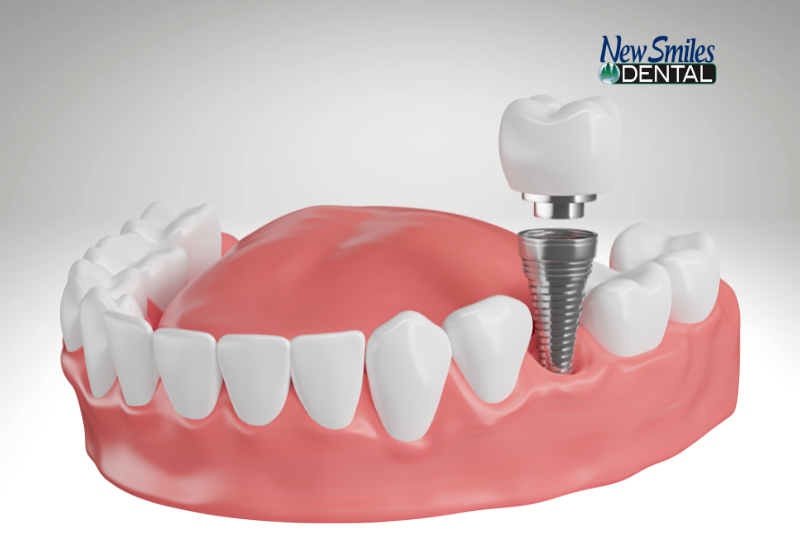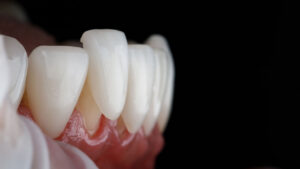Introduction
Welcome back to our blog series, “The Ultimate Guide to Dental Implants,” brought to you by New Smiles. In our previous posts, we covered the process of obtaining dental implants and the importance of understanding each step. Now, we’ll focus on one of the most crucial aspects of dental implants: proper care and maintenance to ensure their longevity and success.
Dental implants are designed to last a lifetime with the right care. In this post, we will share essential tips and best practices for maintaining your dental implants, so you can enjoy your restored smile for years to come.
Maintain Good Oral Hygiene
Just like your natural teeth, dental implants require regular dental visits and thorough oral home care. Floss and brush your teeth at least twice a day with an electric toothbrush (we suggest Sonicare or Oral B products) and use a fluoride toothpaste. Pay special attention to the area around the implants and abutments, ensuring you remove any food particles and plaque buildup. Your hygienist may also offer oral hygiene advice and suggest a WaterPik, special in-between brushes and/or other tools to help effectively clean around the implants or prosthesis.
Schedule Regular Dental Check-Ups
Routine dental visits are essential for monitoring the health of your dental implants. We recommend coming in for check-ups at least twice a year. During these visits, our dental professionals will conduct thorough examinations and cleanings to keep your implants and surrounding teeth and gums in optimal condition. Early detection of any issues can prevent complications and extend the lifespan of your implants.
Be Mindful of Your Diet
While dental implants are robust and durable, it’s important to be cautious about what you eat. During the healing stage of a single implant it is important to avoid eating in that area until the crown is placed.
For full-arch cases (All-On X), only soft foods that you can cut with a plastic fork are allowed. Once the implants are fully integrated and restored and a final prosthesis is placed, there are no food restrictions. However, be mindful that a healthy diet is always encouraged.
Substances to Avoid
If you’re a smoker, use tobacco, nicotine or marijuana products, it’s crucial to consider quitting prior to having an implant placed. These substances can significantly affect the success of your dental implants, as it impairs healing and increases the risk of complications, such as infections and implant failure. Talk to your dentist about the resources available to help you quit and improve your overall health.
Protect Your Implants from Grinding
If you tend to grind your teeth (a condition known as bruxism), it’s essential to address this issue, as it can place excessive force on your dental implants, compromising their stability and may lead to implant failure. Discuss the possibility of a night guard with your dentist, which can protect your implants and natural teeth while you sleep.
Be Aware of Any Changes
It’s vitally important to be aware that any changes you may have in your health, may affect your implants as well. Please update your dentist with any changes.
For example, a new medication (prescription or over-the-counter) or a new health diagnosis, such as diabetes, depression or cancer, can have significant side affects which may cause changes in your oral health. If you experience dry mouth, unusual discomfort, swelling, or changes in your gum tissue, contact our office immediately. Early intervention can help prevent more serious issues and ensure your implants continue to integrate and function effectively.
Conclusion
Caring for your dental implants is a crucial part of maintaining your smile and ensuring the long-term success of your restoration. By following these best practices and staying proactive with your oral health, you can enjoy the benefits of your dental implants for many years.
At New Smiles, we are committed to your dental health and happiness. Our doctors are implant specialists and board certified. If you have any questions about having an implant placed, caring for your current implants or if you just need to schedule a check-up, don’t hesitate to reach out. Our team is highly qualified and happy to help you from start to finish in your implant journey.
Blogs in Series: 1. The Basics 2. Types and Benefits 3. Qualifications 4. Implant Procedure 5. This Article













